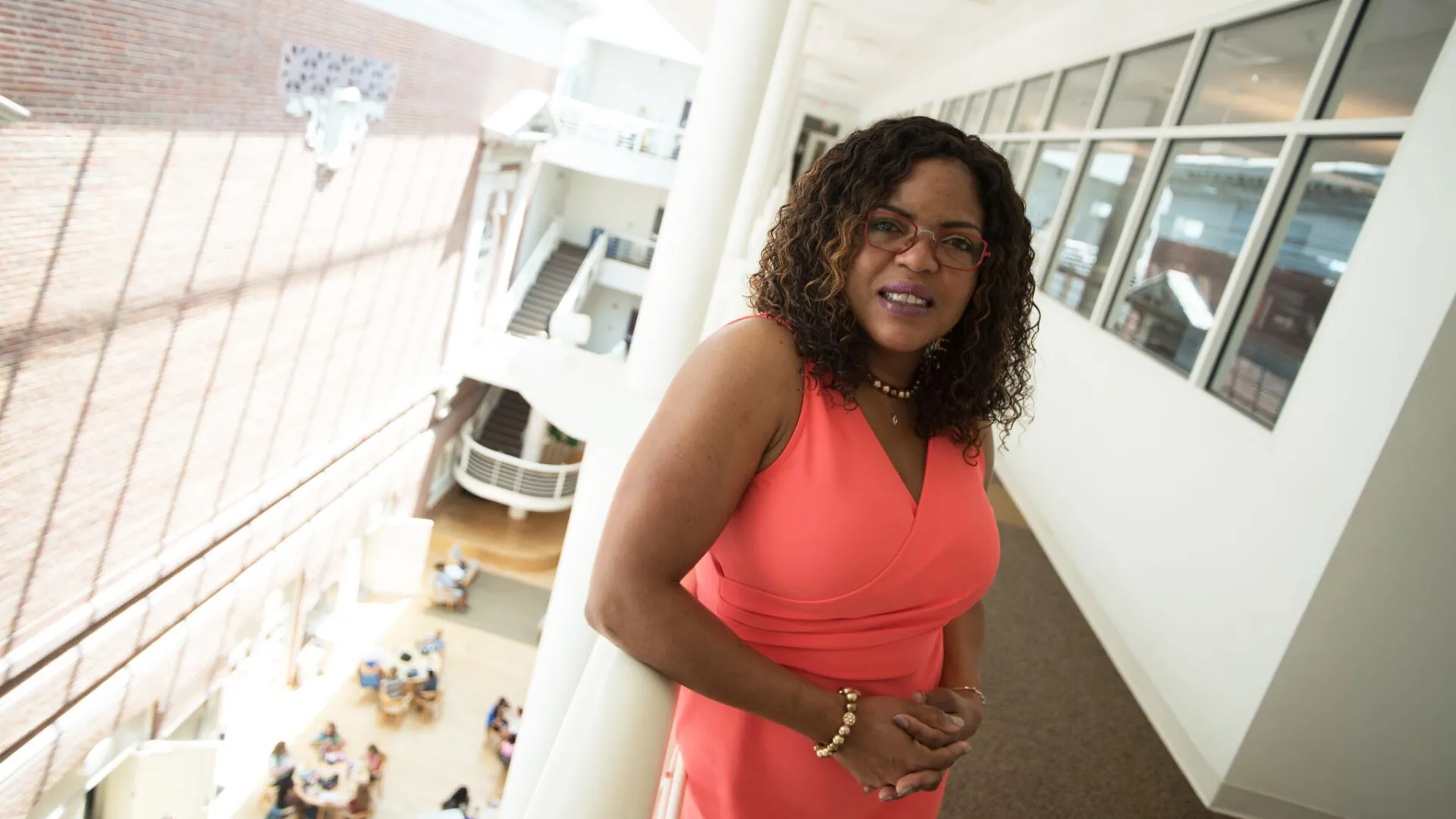Joe Gutierrez | Office of Strategic Communication | (909) 537-3007 | joeg@csusb.edu

Will your success in science be affected if you are black or brown?
Vanderbilt University’s Ebony O. McGee will tackle that question and discuss her book on that subject during a lecture presented by the Cal State San Bernardino College of Natural Sciences. McGee is an associate professor of diversity and science, technology, engineering, and mathematics (STEM) education.
McGee’s lecture, “Black, Brown, and Bruised: How Racialized STEM Education Stifles Innovation,” will be Friday, May 6, at 2:30 p.m. in the Center for Global Innovation, Room 210 (CGI-210). Attendees can register for the lecture using the event’s registration link. Attendees can also join virtually by registering using the event’s Zoom webinar registration link. Full details are available on the event’s Coyote Connection post.
McGee investigates what it means to be racially marginalized and minoritized in the context of learning and achieving in STEM higher education and in the STEM professions. She will also discuss her book by the same title.
“I am very excited to have Dr. McGee share her insights and powerful perspectives with our faculty, students, and the CSUSB community,” said Sastry G. Pantula, dean of the college. “I deeply appreciate her scholarship and research that supports efforts to enhance diversity among STEM students and shed light on how systems can be improved for underrepresented communities to reach their full potential in the classroom, academia, and workforce. Diversity enhances excellence in science.”
McGee earned a Ph.D. in mathematics education and a Spencer Postdoctoral Fellowship from the University of Illinois, as well as a National Science Foundation (NSF) Postdoctoral Fellowship from Northwestern University.
With support from NSF grants, she co-founded the Explorations in Diversifying Engineering Faculty Initiative (EDEFI) to investigate “the institutional, technical, social, and cultural factors that affect decision-making, career choices, and career satisfaction for engineering and computing doctoral students, candidates, postdoctoral researchers, and faculty who have been marginalized by race and/or gender,” according to its website.
McGee also co-founded the Institute in Critical Quantitative and Mixed Methodologies Training for Underrepresented Scholars, which “aims to be a go-to resource for the development of quantitative and mixed-methods skillsets that challenge simplistic quantifications of race and marginalization.”
“I study in particular the racialized structures and institutional barriers that adversely affect the education and career trajectories of underrepresented groups of color, particularly focusing on STEM entrepreneurship,” McGee says in her Vanderbilt bio.
Supported by an NSF Faculty Early Career Development Program grant, she investigates “how marginalization undercuts success in STEM through psychological stress, interrupted STEM career trajectories, impostor phenomenon, and other debilitating race-related trauma for Asian, Black, Indigenous, and Latinx doctoral students.
For more information, contact Yolanda Thomas at cns@csusb.edu or at (909) 537-5300.